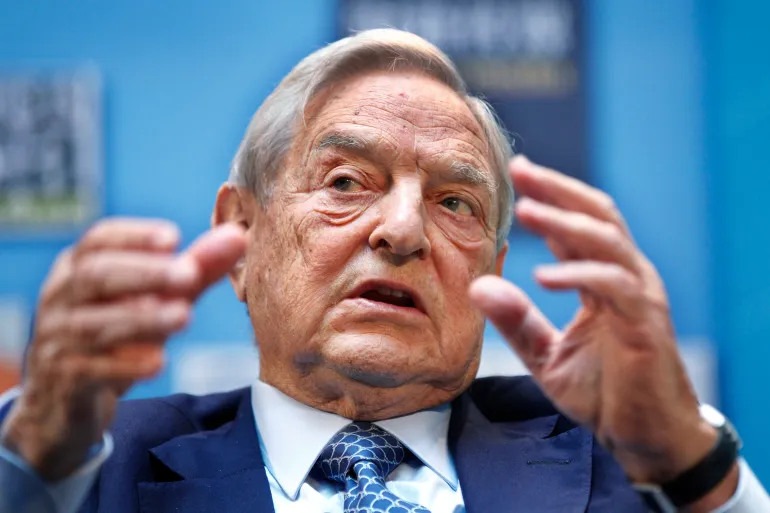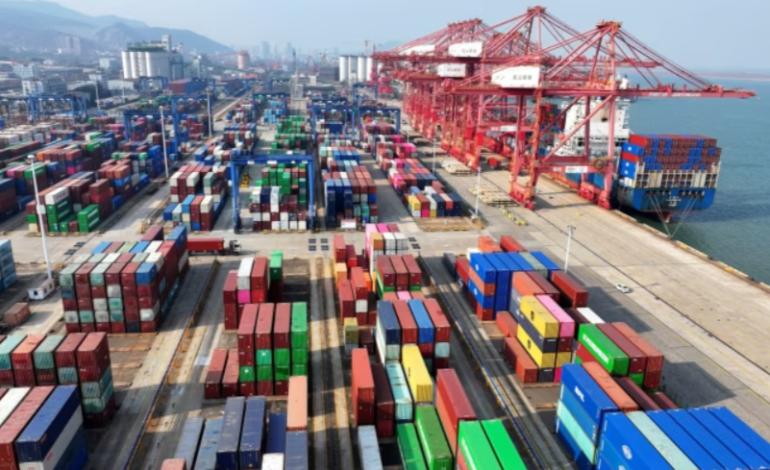China’s President Xi Jinping has pledged that the country will meet its 5% GDP growth target for the year and maintain its role as a driving force for global economic expansion, the Financial Times reports.
The remarks, aimed at reassuring international investors and financial leaders, come as Beijing intensifies efforts to counter deflationary pressures and revive domestic consumption.
Xi’s statement was made during a high-profile gathering in Beijing with key figures from international financial institutions, including IMF Managing Director Kristalina Georgieva and World Bank President Ajay Banga. The pledge coincided with fresh signs of policy support, including a shift in China’s monetary policy stance and renewed commitments to stimulate demand.
China’s markets responded positively to the announcements. The CSI 300 index of mainland-listed shares rose as much as 3.3% at the start of trading on Tuesday, before closing up 0.7%. Meanwhile, the yield on China’s benchmark 10-year government bonds dropped by five basis points to 1.86%, a record low, as investors bet on additional interest rate cuts from the central bank. Lower bond yields typically reflect investor expectations of more supportive monetary policy.
These moves follow a pivotal Communist Party politburo meeting, during which China’s leaders signaled plans for “extraordinary” measures to boost growth. The shift marks the first change in China’s monetary policy stance in 14 years and reflects growing urgency to address weak consumption and inflationary pressures.
Recent economic indicators underscore the scale of the challenge. Import data for November showed a 3.9% year-on-year decline, the steepest drop since February, reflecting continued softness in consumer demand. Inflation remains low, with consumer prices rising by just 0.2% in November compared to a year earlier.
“The contraction of imports is consistent with the weak [consumer price] data,” said Zhiwei Zhang, chief economist at Pinpoint Asset Management, in a note to investors.
He added that the politburo’s meeting signaled a shift toward stronger domestic demand in 2024, though details of the government’s next steps remain unclear.
While imports fell, exports posted a 6.7% year-on-year increase in November, though this was below analysts’ expectations. Exporters are believed to be rushing shipments ahead of potential new US tariffs under the incoming Trump administration. China’s trade surplus with the U.S. widened to $34.9 billion in November, up from $33.5 billion in October.
Analysts at Capital Economics noted that while the pace of export growth slowed, it is unlikely to mark the end of China’s export boom.
“We expect exports to accelerate again in the coming months, supported by gains in export competitiveness and exporters front-running tariffs,” they said.
Beijing’s economic plans are also being shaped by shifting global trade relations, particularly with the US. The return of Donald Trump to the White House has sparked concerns about the reintroduction of higher tariffs on Chinese goods. Xi called for “stable, healthy, and sustainable” US-China relations, while warning that “tariff wars, trade wars, and technology wars go against historic trends.”
The two leaders reportedly spoke recently, though the details of their discussion were not disclosed. Meanwhile, China’s government has emphasized its readiness to manage potential fallout from US policy changes.
China’s upcoming Central Economic Work Conference, one of the most important annual economic policy events, is expected to offer further clarity on Beijing’s economic strategy for 2024. Investors will be watching closely for new measures aimed at supporting the property sector, stabilizing the stock market, and boosting consumer demand.
With deflationary risks lingering, Beijing’s response will be crucial to restoring investor confidence. Market participants anticipate that policymakers will adopt a “more proactive” fiscal stance and increase consumption-boosting measures, as pledged by the politburo.









